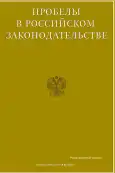Topical Issues of Training the Staff of the Department of Internal Affairs in Tactical Peculiarities of Forced Detention of Offenders
- Authors: Afov A.K.1
-
Affiliations:
- North Caucasus Institute for Advanced Studies (branch) of the Krasnodar University of the Ministry of Internal Affairs of Russia
- Issue: Vol 15, No 4 (2022)
- Pages: 69-73
- Section: Articles
- URL: https://journal-vniispk.ru/2072-3164/article/view/147530
- ID: 147530
Cite item
Abstract
In this article, we have studied the issues of training police officers in the tactical features of the forceful detention of offenders. It was established that in order to carry out a forceful detention, an employee must have an exhaustive knowledge of fighting techniques, as well as a high level of general and special physical training. These qualities are developed in the process of training in educational institutions of the Ministry of Internal Affairs of Russia. Training in methods of forceful detention is an integral part of the physical training of an internal affairs officer. In the process of physical training, the main task is to prepare an employee for work in extreme situations, improve the health of an employee, and teach all the necessary methods of dealing with an offender. By implementing this activity of the training process, employees are trained in the skills to counter offenders in various situations, including, if necessary, hand-to-hand combat with them. The practice of law enforcement activity indicates the occurrence of situations when an employee with an offender engage in hand-to-hand combat and the task of the employee is to suppress aggression against him, incl. measures of physical influence, if non-forced methods of influence did not provide the desired result. The use of measures of physical influence and methods of forceful detention are retaliatory actions towards the offender who attacked the police officer or resisted his legal requirements. It is concluded that an important aspect of forceful detention is the development of a specialized methodology for training employees with poor physical fitness and the selection of an individual training program for them. At the same time, training in combat fighting techniques is an insufficient measure, since legal training is still needed in the context of the legality of the use of physical force and fighting techniques only in extreme cases and situations that directly threaten the health and life of an internal affairs officer or civilians.
Full Text
##article.viewOnOriginalSite##About the authors
Alikhan Khazhmuratovich Afov
North Caucasus Institute for Advanced Studies (branch) of the Krasnodar University of the Ministry of Internal Affairs of Russia
Email: kodzokov.aznaur@bk.ru
Cand.Sci.(Pedagogics), police captain, Senior Lecturer of the Department of Physical Training Nalchik, Russia
References
- Federal Law “On Police” dated 07.02.2011 No. 3-FZ [Electronic resource] // Access mode: http://www.consultant.ru/document/cons_doc_LAW_110165/ (accessed 14.04.2022).
- Gerasimov I. V. Methodological aspects of the development of power abilities of police officers // Scientific Bulletin of the Orel Law Institute of the Ministry of Internal Affairs of Russia named after V. V. Lukyanov. 2016. No. 3 (68). Рp. 136-139.
- Gerasimov I. V. Methodological foundations of strength training // Nauka-2020. 2018. № 1-1 (17). Pp. 22-31.
- Gubzhokov A. Kh. The influence of physical training on the physical condition of employees of the internal affairs bodies of the Russian Federation // Pedagogical journal. 2018. Vol. 8. No. 5A. Рp. 87-93.
- Dadov A.V. Effectiveness of training police officers in the use of physical force//Education. Science. Scientific cadres. 2020. № 2. Рp. 210-212.
- Meshev I.Kh. Methodology for the selection of exercises for the development of strength endurance in the practice of physical training of police officers // Success of modern science. 2017.Vol. 1. No. 1. Pр. 93-95.
- Sokurenko V.S. Using the method of circular training to improve the strength endurance of employees of internal affairs bodies // Scientific-methodical electronic journal Concept. 2014. No. Vol. 20. Рр. 3666-3670.
- Struganov S. M., Galtsev S. A., Gavrilov D. A. Physical qualities as fundamental indicators of the formation of professional and applied skills and skills of cadets of educational organizations of the Ministry of Internal Affairs of Russia and employees of law enforcement agencies // Law Enforcement agencies: theory and practice. 2015. No. 2. Рp. 203-206.
- Cherkesov R.M. Means and methods of special power training of martial artists. // The science. Scientific personnel. 2019. No. 1. Рp. 206-208.
- Cherkesov R.M. The use of the circular training method for the development of strength endurance and its role in the general functional state of students of educational institutions of the Ministry of Internal Affairs of Russia // Gaps in Russian legislation. 2020. Vol. 13. No. 4. Рр. 196-199.
- Yaroslavsky M.A. Goals and means of functional training // In the collection: Physical education and sport: topical issues of theory and practice, collection of materials of the All-Russian scientific and practical conference. 2018. Рр. 299-304.
Supplementary files








